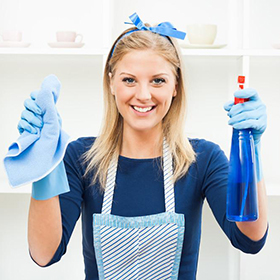
Two hundred scientists any benefits of triclosan and triclocarban—used in some soaps, toothpastes, detergents, paints, carpets—are outweighed by the risk. While other studies and the FDA in the US say there is no benefit from using these ingredients over basic soap and cleaning products.
these two chemicals have been used for years without any definitive proof they’re providing benefits.
The compounds are used in an estimated 2,000 products but are being phased out of some uses. In February the EU banned triclosan in hygiene products. U.S. manufacturers are phasing out triclosan from hand soaps after the Food and Drug Administration banned it last year amid concerns that the compound disrupted the body’s hormone systems.
And in Australia they are doing nothing.
However, just as worrying some manufactures of personal care products are simply substituting other antimicrobials for triclosan when they are not even needed.
The Florence Statement on Triclosan and Triclocarban
As scientists, medical doctors, and public health professionals, we are concerned about the continued widespread use of the chlorinated antimicrobials triclosan and triclocarban for the following reasons:
Triclosan and triclocarban are used as antimicrobials, a class of chemicals present in >2,000 products including soaps, toothpastes, detergents, clothing, toys, carpets, plastics, and paints. In personal care products like hand soap, there is no evidence that use of triclosan or triclocarban improves consumer or patient health or prevents disease.
Triclosan and triclocarban used in consumer products end up in the environment and have been detected in a wide variety of matrices worldwide.
Triclosan and triclocarban persist in the environment and are a source of toxic and carcinogenic compounds including dioxins, chloroform, and chlorinated anilines.
Triclosan, triclocarban, and their transformation products and byproducts bioaccumulate in aquatic plants and animals, and triclosan partitions into human blood and breast milk.
Triclosan and triclocarban have detrimental effects on aquatic organisms.
Humans are exposed to triclosan and triclocarban through direct contact with personal care products and from other sources including food, drinking water, and dust. Triclosan has been detected in the urine of a majority of humans tested.
Triclosan and triclocarban are endocrine disruptors and are associated with reproductive and developmental impacts in animal and in vitro studies. Potential implications for human reproduction and development are of concern and merit further study.
Human epidemiology and animal studies suggest triclosan exposure can increase sensitivity to allergens.
Overuse of triclosan may contribute to antibiotic/antimicrobial resistance and may modify the microbiome.
A number of authorities, including the FDA, have restricted the use of triclosan and triclocarban in certain types of soaps. These and other antimicrobial chemicals are generally not restricted from use in other products.
We therefore call on the international community to limit the production and use of triclosan and triclocarban and to question the use of other antimicrobials. We urge scientists, governments, chemical and product manufacturers, purchasing organizations, retailers, and consumers to take the actions recommended below.
Source
https://ehp.niehs.nih.gov/ehp1788/